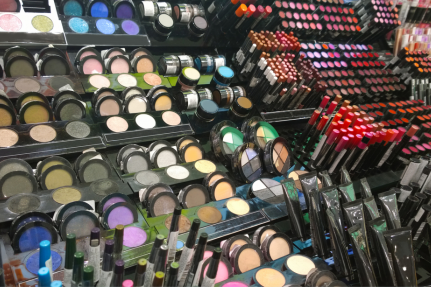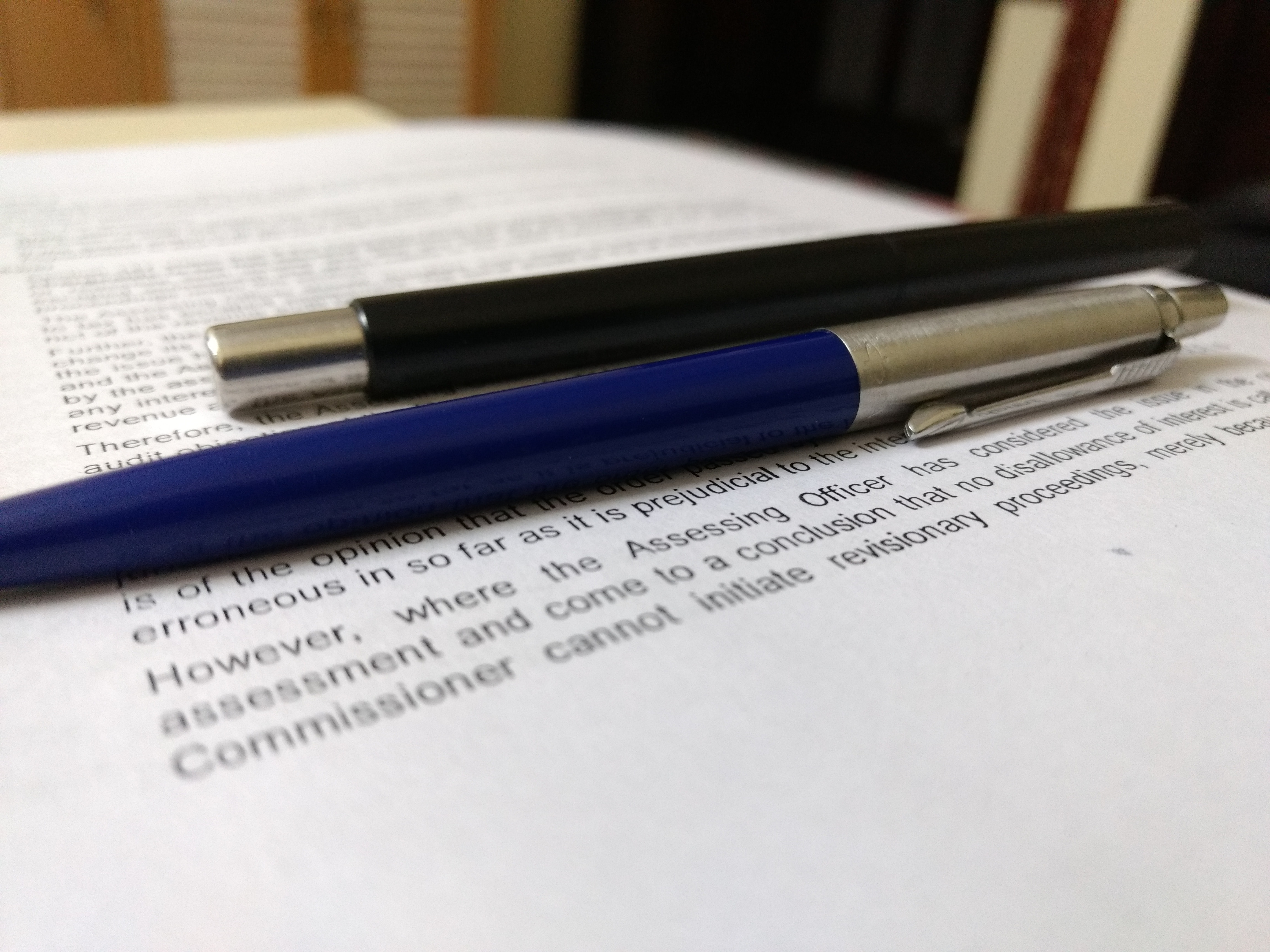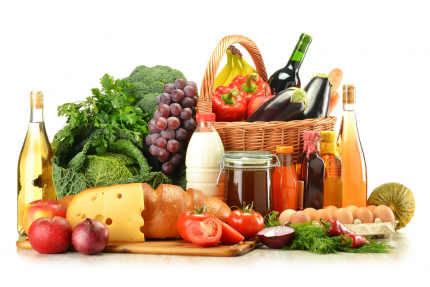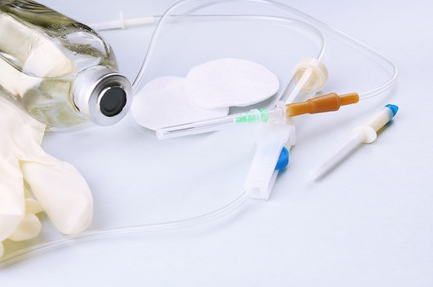Aviation
For over 20 years, Intertox, Inc. has assisted airlines, aircraft manufacturers, nonprofits, and other stakeholders in the assessment of chemical and biological risks occurring during aircraft manufacturing, operations, and maintenance. We regularly perform workplace safety audits to proactively identify potential risks and then design safety protocols and workplace exposure limits that comply with state, federal, and international standards. Clients use Intertox’s clear and understandable science to address litigation issues such as personal injury and workers’ compensation claims.
Services:
- Conducting exposure assessments
- Conducting chemical safety assessments
- Assisting risk managers and corporate counsel
- Providing training and informational material
- Developing Environmental Health and Safety (EHS) education and training programs
- Developing chemical safety programs to meet regulatory requirements
Examples:
- Conducted a toxicity assessment of composite material for passenger aircraft.
- Conducted a toxicity assessment of laboratory testing data for certification of a new passenger aircraft.
- Performed evaluations of air crew members’ possible exposures to jet engine oil or hydraulic fluids, triggered by foul odors.
- Assessed bleed air contamination and the toxicology of airborne nanoparticles to workers.

Occupational Health
At Intertox, our scientists have tested chemical and biological agents in the workplace. Our work helps our clients rigorously evaluate potential safety concerns and workers’ compensation claims according to the best science.
Our team follows state, federal and global practices when we conduct our assessments. We work with clients to prevent workplace health effects.
Services:
- Performing workplace safety audits
- Developing custom environmental health and safety training programs
- Conducting occupational exposure assessments/audits
- Assessing workers’ compensation claims
- Creating workplace data-based exposure limits (OELs and PELs)
- Developing chemical safety programs that meet regulatory requirements
- Assess worker’s compensation claims
Examples:
- Conducted chemical assessments of uniforms to assess whether garments caused dermatological and respiratory health effects.
- Provided risk communication work to employees and residents related to air emissions from of a company with worksites around the world; developed materials for company’s internal website explaining air pollution, standards and limits for indoor and outdoor air health effects.
- Assisted a client that worried about its workers being exposed to unhealthy levels of volatile organic chemicals. Sampled air in the workplace and compared results with guidelines set by OSHA and various state agencies. Provided client with findings based on science and advised on how to lessen risk.

Consumer Products
Intertox has helped companies improve the safety of consumer products for more than 20 years. Intertox uses science-based principles to help our clients manage any risks to human health that emerge. The experts on our staff study each step of the process from manufacturing to delivery. We study the potential risk for both workers and end-users.
Our deep knowledge of chemicals and the conditions under which they should be handled allows us develop protective, cost-effective safety programs that comply with regulations. Our experts review the risks of chemicals both in initial and continuing use. This ensures that when our clients “go green,” for instance, they truly reduce chemical risk.
We have built strong relationships with testing laboratories. This enables us to work seamlessly with clients and labs to identify extractables and leachables in products and their packaging. We can then assess what, if any, risk they might pose. If they do pose risks, we are there to find ways to address them.
Through the years, we have worked with clients to measure and assess chemical health risks associated with a wide variety of products and their packaging. Among them have been inhalers, sealed toys, insulin pumps, candy wrappers, IV bags, and inks on containers
Case Study: Cell phone carriers are challenged often on whether their phones may make people sick. One asked us to find answers. We assembled a random selection of their phones to test. We looked at two things. First, we checked the chemicals found on or in the phones themselves. Then we looked at the packaging. Our client wanted to know whether users may be harmed by inhaling chemicals that might have no odor. They also asked us to find out if simply holding or touching a phone poses a risk. We developed a forensic program to assess the source of the exposure and then evaluate any likely health outcomes. With this information, our client was able to address concerns directly and with science-based facts.
Case Study: A client asked Intertox to conduct human and ecological risk assessments of ethylene vinyl alcohol, the chemical used to make shipping packaging commonly known as “peanuts.” Using U.S. EPA guidelines as benchmarks, we reviewed laboratory data, the current scientific literature, and the use of the material as a consumer product. Our report included a risk assessment of potential cancer and non-cancer endpoints.
Services
- Conduct exposure and chemical safety assessments of manufacturing processes
- Coordinate laboratory testing for leachable compounds and analyze the results
- Design and implement scientific studies to assist in product liability litigation case development
- Serve as expert witness/consulting expert

Litigation Support
At Intertox, we transform complex data into clear scientific expertise that is presentable across multiple formats to non-scientific audiences. Whether it’s sworn testimony as an expert witness, or a written report delivered to a client, our scientists are gifted at presenting critical facts to support factual legal arguments.
We have worked side-by-side with legal teams for more than 20 years. Corporate legal counsels turn to us to evaluate scientific evidence for large-scale class actions. Our toxicology experts tackle a broad range of services. We routinely assess the technical compliance behind various high-impact issues including health and workers’ compensation claims, manufacturing exports, product safety and ecological and environmental impacts. People count on us for expert assistance on a range of compliance assessments.
Armed with our analysis, Intertox provides legal teams with the insight needed to place their clients in an educated position in order to better evaluate, or strengthen, their legal case.
Services
- Serve as an expert witness
- Serve as a consulting expert
- Conduct human and environmental health risk assessments based on the specific case facts
- Evaluate expert reports according to the best practices of toxicology
- Review and interpret medical and laboratory data
- Conduct additional scientific analysis to shed light on ongoing questions or future concerns
Examples
- Assessed soil samples for a manufacturing client to determine if deposited chemicals complied with U.S. EPA risk assessment practices and standards. In our corresponding report, we effectively rebutted the oppositions’ claims by showing that the opposing findings incorrectly assessed the facts of the case.
- A law firm representing a manure manufacturer requested our services to evaluate whether contaminates were causing adverse effects to source water. We found critical methodological flaws and data gaps that made the opposition’s conclusions unscientific.

Food and Beverage
At Intertox, we help clients assess and reduce risks posed by food and beverages. Microbial spoilage and chemical contamination have become big issues for the food and beverage industry. Intertox helps producers find the cause of their problem and put together a plan to fix it.
We identify, test, assess, and monitor food contaminants. We help clients learn if chemical uptake into crops from soil and water poses a risk to human health. We also assess whether packaging may contribute to risk.
When a client needs to track down the source of off-flavor in food or beverages, we work alongside them to develop protocols that apply scientific rigor to taste-testing under different conditions. For clients that need it, we develop Environmental Health and Safety employee education and training programs designed to control and reduce the chances of contamination
Case Study: When soil is contaminated, the food that grows in it may be, too. At Intertox, we have done more than 30 multi-pathway risk assessments to identify the possible source of contamination. Chemicals of concern have included metals, dioxins, furans, polyaromatic hydrocarbons, nitrogen oxides, and sulfur oxides. Depending on the situation, we focus on specific endpoints, such as neuroanatomical effects, and on vulnerable subpopulations, such as the developing fetuses of local pregnant women.
Case Study: A client was concerned that a drinking water dispenser at one of its offices might be contaminated and that its staff put at risk. Intertox conducted a water sampling program to test water for 107 chemicals and 3 biological agents. Based on the results, Intertox identified 27 chemicals of interest (COIs) and performed a toxicological risk assessment on the COIs for cancer and non-cancer endpoints. Our assessment clarified and explained potential risks to staff due to contamination, allowing our client to take mitigating steps.
Services
- Conduct farm-to-table food contaminant risk assessments along with remedial consultation
- Work with risk managers and corporate counsel to develop risk strategies, along with EHS education and training programs
- Conduct chemical safety assessments/audits
- Develop chemical safety programs that meet regulatory requirements

Water Quality
Intertox works with utilities to define and manage potential risks caused by an array of chemicals found in water supply systems. We help utilities decide what to track and how to do it, set acceptable exposures levels, and report findings to the proper agencies and the public.
Intertox has helped utilities protect and improve drinking water for more than 15 years. We partner with utilities to create dynamic ways to track ongoing potential risks. Clients turn to us to develop top-flight Environmental Health and Safety programs. And when there is something that must be reported, we help our clients find the best ways to tell it to the key agencies and the public. Moreover, we’ve done pioneering work in the study of endocrine disrupting chemicals in drinking water, and are at the forefront in setting acceptable daily intakes relating to contaminants of emerging concern.
From the treatment plant to the faucet, Intertox staff are experts in evaluating whether chemicals pose risks to human health. We are known for our scientific rigor, creative use of visuals, and clear presentation of facts.
Case Study: Intertox has helped school systems learn if lead in their drinking water posed a risk to their staff and students. We used computer modeling to predict blood lead levels resulting from past and current exposures. When called for, we gave focus to those groups who might be more at risk. When risks were identified, we helped schools clearly and factually explain the issue to parents.
Case Study: A water district asked Intertox to use visuals on the district’s website to show contamination data in a way that would be easy for a lay person to grasp. Intertox developed a simple graphic that showed what contaminants were found, and in what quantity. The public could easily compare the maximum amounts found against Accepted Daily Intakes (ADI’s), levels considered safe by regulators. Intertox updated the graphic based on new quarterly data as it became available. Finally, Intertox created a brochure and other materials that taught district customers how monitoring data are gathered and interpreted.
Services
- Identify chemicals to monitor
- Compute acceptable exposure levels
- Develop the right laboratory approach
- Provide results to the public and government

Manufacturing and Construction
Over the past two decades, Intertox has helped a wide range of material treatment facilities, production plants, trade associations and construction companies in the manufacturing and building trades to assess the chemical and biological impact of manufacturing and construction materials on human health. Our clients, which range from wood treatment facilities to thermoplastic extrusion plants, rely on our in-depth knowledge of the chemical components to reduce risk for employees involved in production and end users of manufactured products and the built environment.
We regularly perform site and facility assessments to proactively identify risks and then design safety protocols to help facilities comply with state, federal, and international standards and reduce risk for employees.
We also develop Environmental Health and Safety (EHS) programs that review the risks of chemicals already in use or are anticipated to be used in the future at manufacturing facilities and construction sites.
Services:
- Conducting exposure assessments for facility design and permitting including OSHA FDA, TSCA compliance, and due diligence audits
- Designing chemical safety programs to meet regulatory requirements
- Serving as an expert witness for workers’ compensation claims
- Developing Environmental Health and Safety (EHS) and restricted substances programs
Examples:
- Conducted a toxicological exposure assessment for cutting fluids used by aircraft manufacturing employees.
- Designed and implemented a materials sampling program to identify risks and mitigate fungal exposure.
- Developed regulated chemicals management systems for manufacture and retail corporations.
- Performed occupational life cycle and safety assessment of carbon nanotubes in manufacturing.
- Assessed formaldehyde generation from manufactured wood products for compliance with CARB regulations.

Medical Device Regulatory Services
Intertox helps clients comply with FDA rules through all phases of developing new medical products and bringing them to market. Our A to Z services include strategy, planning and, when needed, oversight to ensure that the medical product meets or surpasses what the FDA requires of it. We also provide marketing, authorization and product life cycle management programs.
Clients often ask us to help them with the various stages to develop:
- Medical devices,
- In vitro diagnostics,
- Companion diagnostics,
- Pharmaceuticals, and
- Combination products.
Product Development
Intertox helps clients with regulatory approval through all stages of product development. Among our services are:
- Strategic Planning – We help clients build a plan to win FDA approval, including Chemistry Manufacturing and Controls and non-clinical and clinical programs.
- FDA Liaison – At times, clients need us to serve as a direct liaison with the FDA or to provide guidance to coordinate Prescription Drug User Fee Act meetings.
- Non-clinical Regulatory Support – Clients needing investigational new drug applications turn to us. We conduct toxicity studies, associated non-clinical safety studies and biological activity programs.
- Clinical Regulatory Support – We design and stage clinical trials to show safety, proof-of-concept and efficacy in order to win approval to begin sales.
Getting to Market
Once a product is ready to be submitted to the FDA, we offer services to help them at every step, including:
- Regulatory Submission – Our team prepares documents that comply with Common Technical Documents (CTD) requirements, including electronic CTD submission.
- Prior Approval Inspections – We help clients prepare for and be part of FDA prior approval reviews. When the FDA orders changes, we guide the client through the process and what it must do.
- Labeling Negotiations – We help clients through the each step to win approvals for product labeling, advertising and promotional materials.
Life-Cycle Management
Our work with clients continue after the product has been launched. We provide services in two key areas:
- Post-approval commitments – Once a product has won FDA approval, we help maintain compliance, including CMC and Phase IV Clinical Trials.
- Post approval supplements – When changes come after approval, we step in to help manage the process
Global Regulatory Support
We help our clients take their products global. We also work with foreign companies who need regulatory help in the US.
- International registration dossiers – We help clients take their products global. We work with them to develop and submit materials to gain international regulatory marketing authorizations.
- FDA Agent – Foreign clients sometimes ask us to act as a U.S. Regulatory Designated Agent. As such, we serve as a direct liaison with the FDA. In that role, we also manage and submit key documents.

Nanotechnology
A global leader in nanotechnology risk assessment and research, Intertox helps companies across industries navigate risk assessment analysis and regulation for the emerging and ever-evolving field of nanotechnology. With companies adopting more nanotechnologies, we analyze how clients use engineered nanomaterials and develop cost-effective systems to then evaluate impact on workers, customers and the environment.
Clients rely on our science-based expertise of engineered nanomaterials to help draft, revise and set corporate standards and policies around nanotechnology that reduce toxicological risk and establish clear safety protocols to address regulatory concerns.
Our work in nanotechnology remains at the forefront of the field due to our CEO Dr. Richard Pleus’ leadership in the environmental health and safety community’s research efforts to improve nanotechnology risk assessment. He currently leads the U.S. ISO/TC 229 Working Group 3 to set physical and chemical parameters of engineered nano-objects relevant for toxicological assessment and also works to translate insights into efficient ways of predicting nanomaterial risk, such as in silico testing techniques. As co-author of the science textbook Physicochemical Properties of Nanomaterials, Dr. Pleus’ knowledge contributes to the nanomaterials education for toxicologists and risk managers of the future.
Services:
- Establishing parameters for toxicological assessments of nanomaterials.
- Developing cost-effective techniques and models to predict chemical and exposure risk of nanomaterials.
- Developing and revising corporate policies and standards on chemical risk of engineered nanomaterials.
Examples:
- Designed an in silico model for a global insurance company to predict nano-risk during product appraisals for insurance applications.
- Evaluated workers’ risk of exposure to airborne nanoparticles while sanding and grinding composite materials containing carbon nanotubules.

